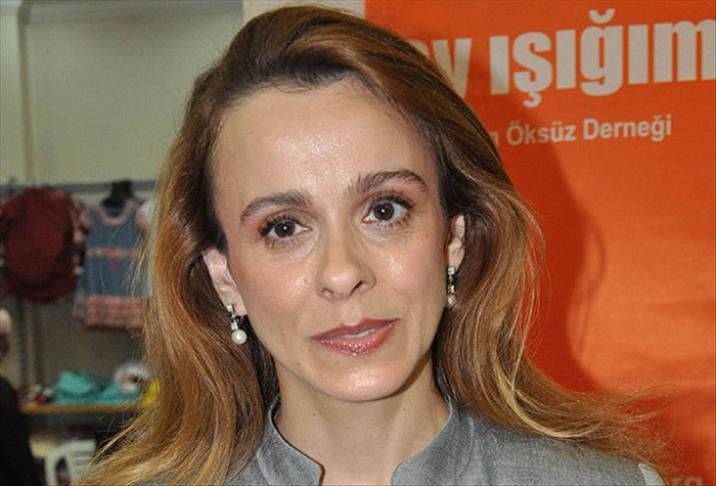
By Burcu Arik
ISTANBUL
Women deputies to parliament have become ever more active and ever more effective since the first women were elected on Feb. 8, 1935.
There are today more female deputies than ever before, with 77 women in parliament.
Turkish female deputies have become more active over 80 years in terms of challenging and overcoming the traditional female roles prescribed by the society.
"The changing face of women in politics is actually the changing face of Turkish women in recent years," says Zeynep Karahan Uslu, an MP for the Justice and Development Party.
"Turkish women deputies have overcome the prejudice against themselves. I guess it has been the most significant change during the recent years," she added.
"During my career, both in small villages and big cities, I have often heard a Turkish proverb from men: 'It does not matter male or female, a lion is a lion,'" Uslu said.
According to Uslu, all women, particularly politicians, face gender discrimination at least once in their life. "But we have learnt to fight against it. I generally prefer to stay calm and never lose my self-confidence," she said.
- First women deputies stayed in traditional female roles
Turkey was among the first nations to give women voting rights: In local elections on April 3, 1930, and full voting rights on Dec. 5, 1934.
But the first women deputies stood out from their generation, with educational and cultural levels that were quite high for the day, according to Ayten Sezer, a professor at Hacettepe University, who published "The First MPs of Turkey and Their Works" in 2005.
The majority of deputies had graduated from London universities or the Paris Sorbonne or Istanbul University at a time when nearly 70 percent of the female population was illiterate in the country, Sezer wrote.
Knowing several foreign languages, six of the deputies were members of municipality assemblies, five were school directors, two were teachers, one was a mukhtar, one was a doctor and one was a retired teacher.
According to Sezer, although they were very active in politics, the first women deputies made very few speeches in the parliament which shows that they continued their passivity even in the parliament.
They stayed in the frame of traditional women roles given by the society in their speeches, discussing what were perceived as issues suitable for women like education and health, Sezar wrote.
- Turkish women deputies take on new challenges today
"Turkish women deputies still dominantly talk about education and health issues, but we have been trying to take on challenges," says Dilek Akagun Yilmaz, currently a deputy for the Republican People's Party.
"Today, we can talk about any issue in the parliament. As female representatives, we can defend our own ideas," Yilmaz insists.
However, according to Yilmaz, in order to be able to say that all the Turkish women are totally represented in the parliament, the number of female deputies should increase.
Gonul Karahanoglu, head of the Association for the Support and Training of Women Candidates, similarly says that although seeing a steady increase in recent elections, the number of women in politics is still below the critical level which is 33 percent.
The female population in Turkey is almost exactly half of 75 million, according to the Turkish Statistical Institute. The number of women in the Turkish Parliament was about 4 percent in 1935, but according to the TurkStat, it grew to over 14 percent by 2012.
"Think that just 14 percent of the parliament represents nearly 40 million women. Men take decisions about women and the issues involving women," says Karahanoglu.
"We can only cope with this problem by working together with all the women's branches of political parties, and with women parliamentarians to show that politics is not only a man thing," Karahanoglu adds.
There are currently just 77 female deputies among 550 legislators in the Turkish Parliament and the county has only one woman minister in the cabinet.
The ruling Justice and Development Party has 45 female parliament members, the main opposition Republican People's Party has 17, and the Nationalist Movement Party has 3 as Peoples' Democratic Party has 7 female MPs.
Although the world average for women in parliament increased 0.5 percent and reached 19.5 percent in 2011, the Inter Parliamentary Union said that fewer than one-in-five parliamentarians in the world today are women.
The European average is about 22 percent, but Sweden and Finland stand out with an average of nearly 42 percent, the highest number in the world.
But Uslu said that too much can be made of gender issues.
"The parliamentarian identity should remain ahead of one's gender. As female deputies, we represent not only Turkish women but both Turkish men and women."
Anadolu Agency website contains only a portion of the news stories offered to subscribers in the AA News Broadcasting System (HAS), and in summarized form. Please contact us for subscription options.

